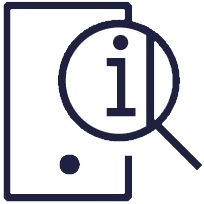Reflective account

Pharmacy guide
A reflective account is one of the records required for revalidation. It's a summary of your practice over the past year.
It should include specific examples of how you meet one or more of the GPhC's standards for pharmacy professionals and how your service users benefited as a result. Until 31 December 2024 the standards you need to reflect on are:
- Standard 1: Pharmacy professionals must provide person-centred care
- Standard 2: Pharmacy professionals must work in partnership with others
- Standard 5: Pharmacy professionals must use their professional judgement
Use this guide to help you complete your reflective account, with advice on how to write one. We have videos, webinars, templates and examples to help you.
First Published: 16 September 2019
Updated: 2 October 2023